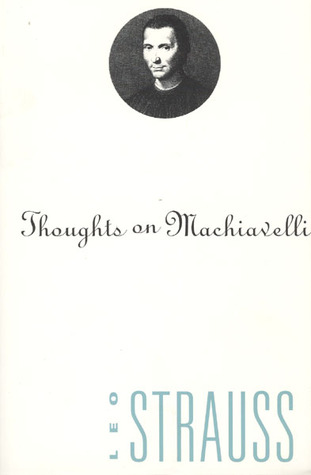Thoughts on Machiavelli, The Free Press, 1958. Reprint: University of Chicago Press, 1978.
Excerpt:
We shall not shock anyone, we shall merely expose ourselves to good-natured or at any rate harmless ridicule, if we profess ourselves inclined to the old-fashioned and simple opinion according to which Machiavelli was a teacher of evil. Indeed, what other description would fit a man who teaches lessons like these: princes ought to exterminate the families of rulers whose territory they wish to possess securely; princes ought to murder their opponents rather than to confiscate their property since those who have been robbed, but not those who are dead, can think of revenge; men forget the murder of their fathers sooner than the loss of their patrimony; true liberality consists in being stingy with one’s own property and in being generous with what belongs to others; not virtue but the prudent use of virtue and vice leads to happiness; injuries ought all to be done together so that, being tasted less, they will hurt less, while benefits ought to be conferred little by little , so that they will be felt more strongly; a victorious general who fears that his prince might not reward him properly, may punish him for his anticipated ingratitude by raising the flag of rebellion; if one has to choose between inflicting severe injuries and inflicting light injuries, one ought to inflict severe injuries; one ought not to say to someone whom one wants to kill “give me your gun, I want to kill you with it,” but merely, “Give me your gun,” for once you have the gun in your hand, you can satisfy your desire. If it is true that only an evil man will stoop to teach maxims of public and private gangsterism, we are forced to say that Machiavelli was an evil man.
Online:
Google Books
Amazon

